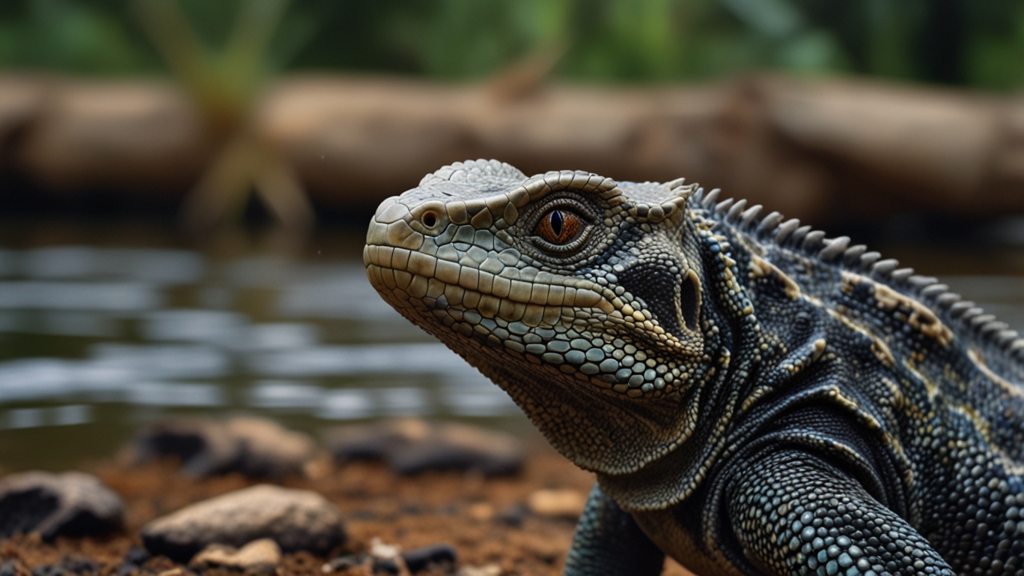What Happens When Reptiles Go Extinct? The Ripple Effect on Nature
Reptiles, often overshadowed by their more charismatic counterparts like mammals and birds, play crucial roles in maintaining the balance within various ecosystems. Their extinction can have unforeseen and far-reaching consequences for natural environments. In this article, we explore the importance of reptiles and the potential ripple effects of their extinction.
The Role of Reptiles in Ecosystems
Reptiles are incredibly diverse, ranging from tiny geckos to massive crocodiles. They occupy various ecological niches and contribute significantly to food webs, pest control, and even human economies. Here are a few critical roles they play:
Predation and Pest Control
Many reptiles, including snakes and lizards, are efficient predators, keeping populations of pests like insects and rodents in check. Without them, these prey populations can explode, leading to agricultural damage and increased disease transmission.
Herbivory and Plant Control
Certain reptiles are herbivorous and help control plant growth. For instance, tortoises graze on vegetation, shaping plant communities and impacting the landscape’s overall structure.
Prey for Other Species
Reptiles themselves are prey for a wide range of animals, including birds, mammals, and other reptiles. Their absence would remove an important food source, potentially leading to declines in predator populations.
The Immediate Consequences of Reptile Extinction
When reptile species become extinct, the immediate effects are often starkly visible:
Increased Pest Populations
The loss of insectivorous reptiles such as certain lizards and snakes can lead to an unchecked increase in pest populations. This can result in significant agricultural and economic damage, as crops become more vulnerable to insect infestations.
Imbalanced Ecosystems
The extinction of herbivorous reptiles can lead to overgrown vegetation, affecting the habitat and food availability for other species. Plants that were previously kept in check by these reptiles may become invasive, further disrupting the ecosystem balance.
"The disappearance of reptiles could lead to ecological imbalances on a scale similar to the loss of top predators. These subtle yet critical creatures have effects that reverberate throughout the ecosystem." - Dr. Jane Smith, Ecologist
Long-Term Ecological Impact
The long-term consequences of reptile extinction extend beyond immediate ecological imbalances:
Loss of Biodiversity
Reptiles are often keystone species. Their loss could lead to a cascade of extinctions among species that rely directly or indirectly on them for survival, leading to a decline in biodiversity.
Changes in Habitat Structure
Reptiles contribute to habitat formation and maintenance. For example, the burrowing activities of tortoises create habitats for other species. Without them, these unique habitats may disappear, affecting numerous organisms that depend on them.
"Reptiles are architects of their ecosystems. Their loss would be akin to removing bricks from a building’s foundation – eventually, the entire structure could collapse." - Dr. Alan Green, Zoologist
Impact on Human Health and Economy
Reptile extinction can also influence human health and economy significantly:
Increased Disease Incidences
With reptiles acting as pest control agents, their absence can lead to a surge in disease vectors like rodent populations, which are known carriers of diseases such as Hantavirus and Lyme disease.
Economic Consequences
The agricultural sector may face severe impacts owing to the loss of reptiles that help control crop pests. Additionally, ecotourism industries that thrive on the presence of unique reptilian species would suffer as well.
Conservation Efforts and the Way Forward
Given their essential roles, the conservation of reptiles is critical. Efforts must focus on habitat preservation, combating illegal trade, and fostering community awareness. Collaborative actions between governments, NGOs, and local communities are essential to ensure the protection of these underestimated creatures.
"Protecting reptiles is not just about saving individual species – it’s about preserving the intricate web of life that sustains us all." - Sarah Thompson, Conservationist
In conclusion, the extinction of reptiles carries implications far beyond the loss of individual species. The intricate roles they play in ecosystems highlight the importance of conserving these vital animals to maintain ecological balance and ensure the long-term health of our planet.









